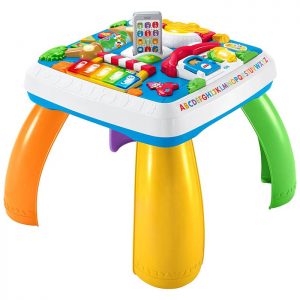Imaginative play, also known as pretend or make-believe play, is an essential aspect of childhood development. Through imaginative play, children have the opportunity to explore various social roles, interact with others, and develop essential social skills. Incorporating toys that foster imaginative play can enhance this crucial aspect of a child’s growth. This article will discuss the benefits of imaginative play, how toys can facilitate social skill development, and provide tips for fostering a rich, imaginative play environment for your child.
Understanding Imaginative Play
Imaginative play is a form of play in which children use their creativity, imagination, and abstract thinking to create stories, scenarios, and characters. During imaginative play, children often assume different roles, such as superheroes, parents, teachers, or animals, and create situations that allow them to explore various emotions and social dynamics. Some popular toys and materials that encourage imaginative play include:
- Costumes and dress-up items
- Action figures and dolls
- Play kitchen sets and pretend food
- Toy vehicles and building sets
- Puppets and stuffed animals
The Role of Imaginative Play in Developing Social Skills
Engaging in imaginative play helps children develop essential social skills, including:
Communication and Language Skills
While engaging in imaginative play, children practice using language to express their thoughts, ideas, and emotions. They also learn to listen and respond to their playmates, developing effective communication skills that are vital for social interactions.
Empathy and Perspective-Taking
Assuming different roles during imaginative play helps children understand the feelings and viewpoints of others. This fosters empathy and allows them to develop the ability to see situations from multiple perspectives.
Cooperation and Conflict Resolution
Playing with others in imaginary scenarios encourages children to work together, negotiate, and share. They learn to compromise and resolve conflicts, which are critical skills for successful social relationships.
Problem-Solving and Decision-Making
Imaginative play often involves creating stories and scenarios that require children to solve problems and make decisions. As they navigate these challenges, they develop the ability to think critically and make choices that positively impact their social interactions.
Encouraging Imaginative Play with Toys
To promote imaginative play and support the development of social skills, consider incorporating the following strategies into your child’s playtime:
- Select toys and materials that are open-ended, versatile, and inspire creativity.
- Create a designated play space where children can freely explore and experiment with different materials and toys.
- Encourage group play with siblings, friends, or family members to help develop cooperative play skills and foster social interactions.
- Join in on the play as a parent or caregiver, modeling appropriate social behaviors and guiding children through challenging situations.
By creating an environment that encourages imaginative play, you can support your child’s social skill development and set the stage for successful future relationships.






















